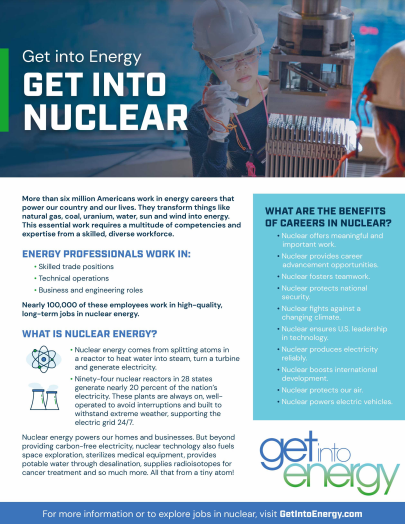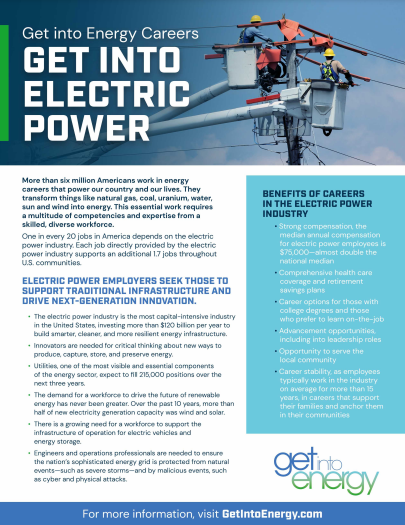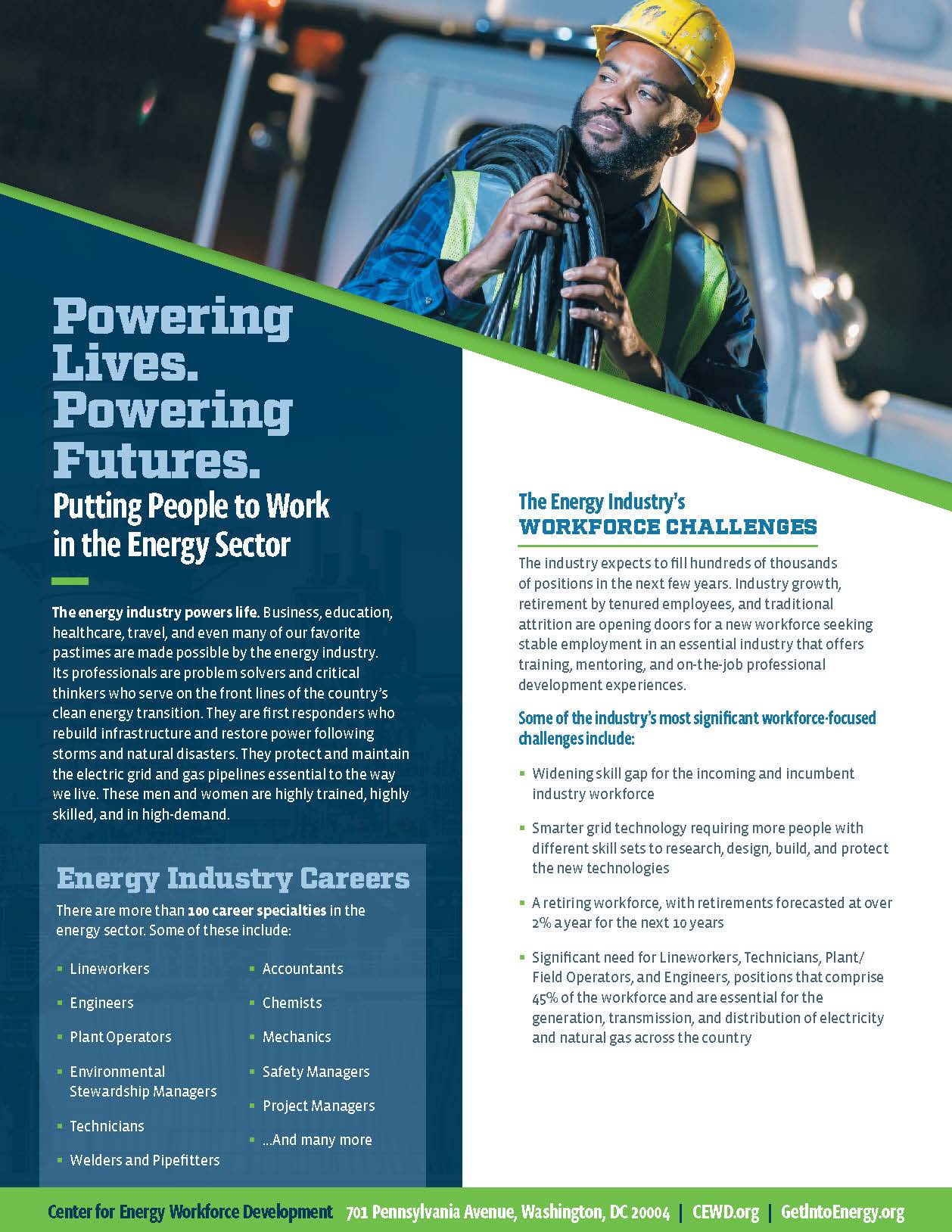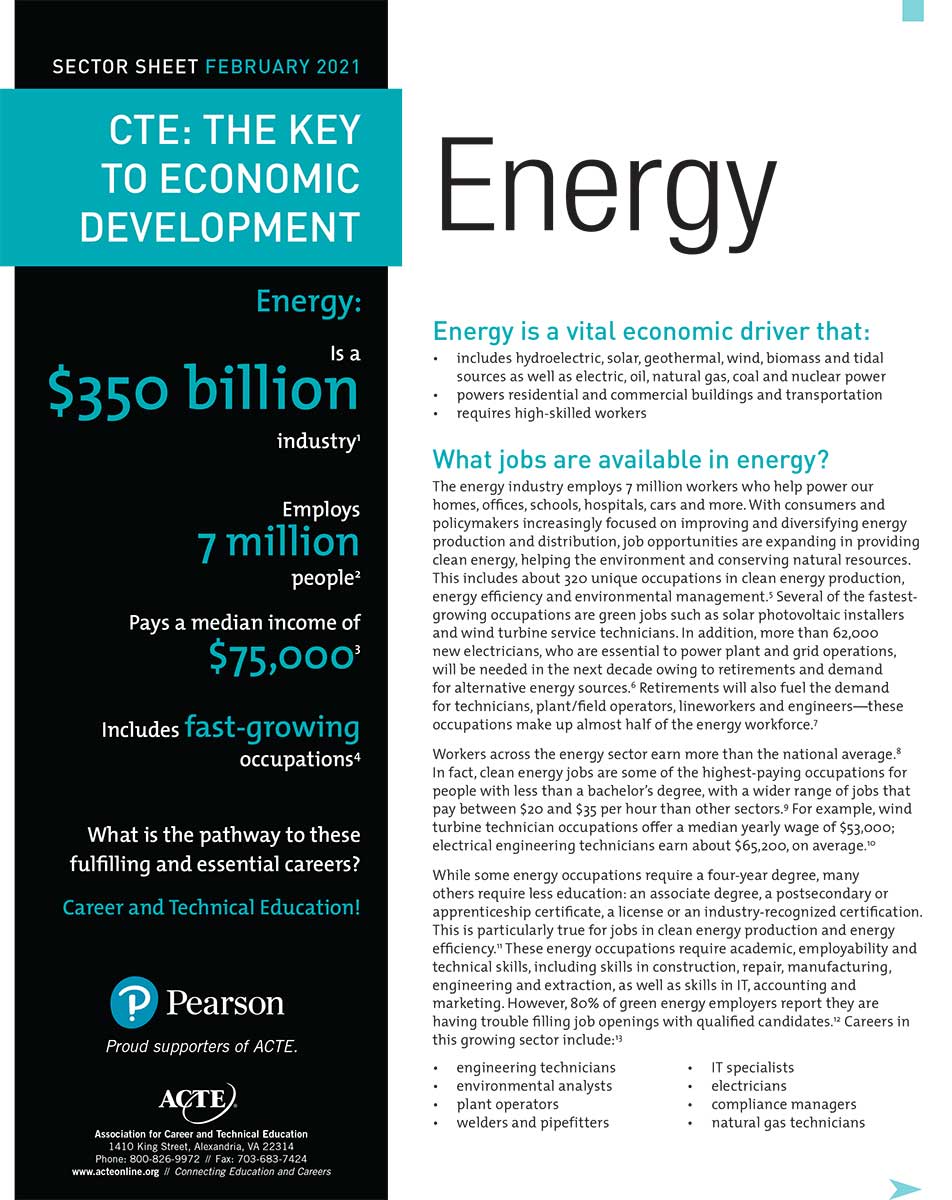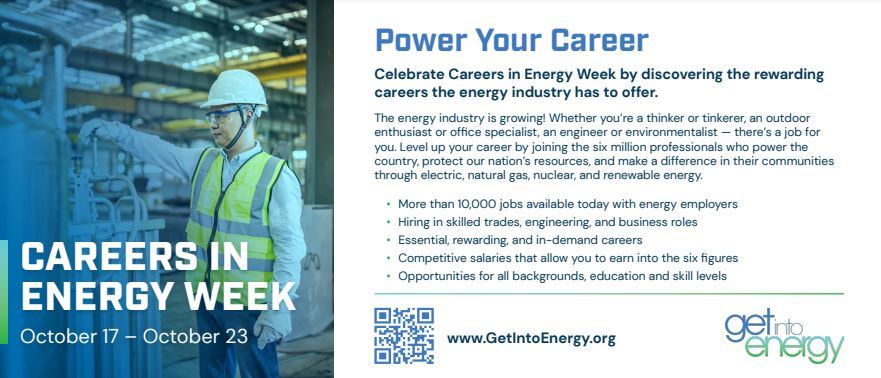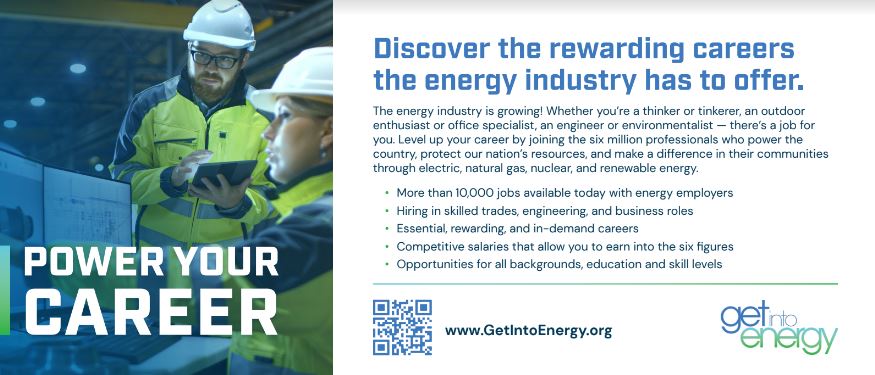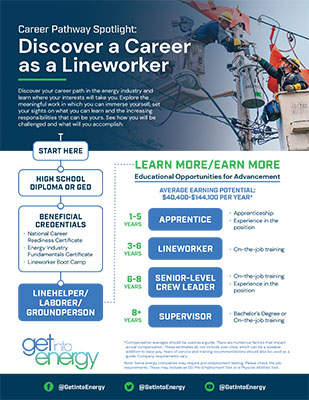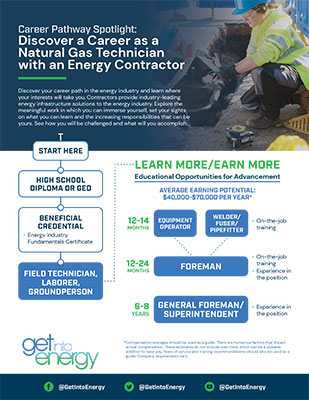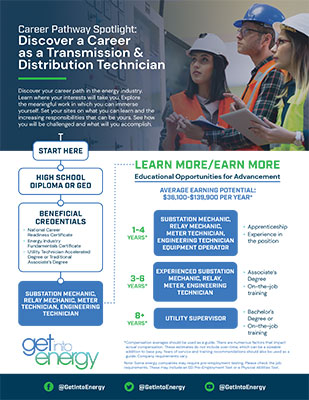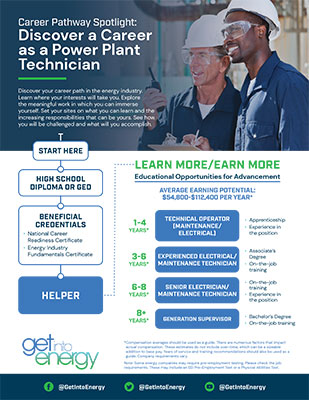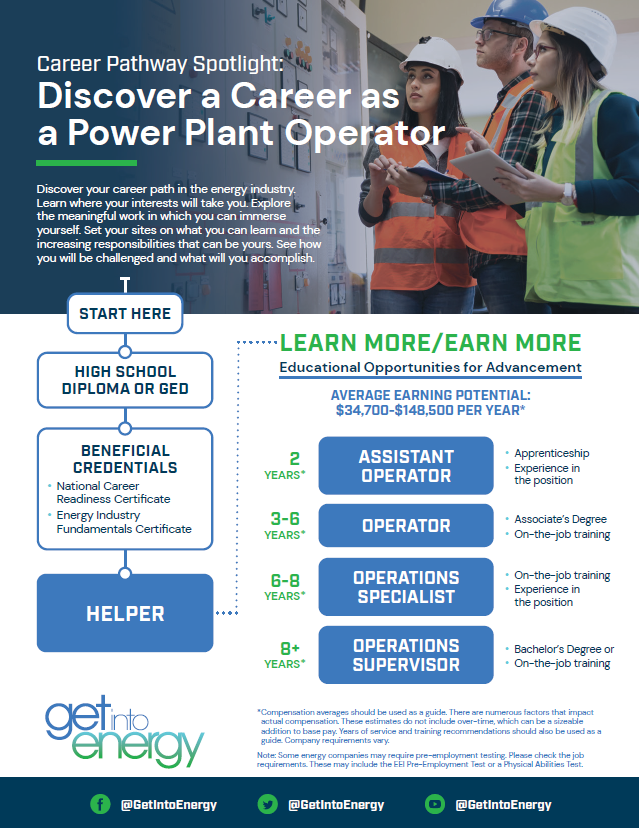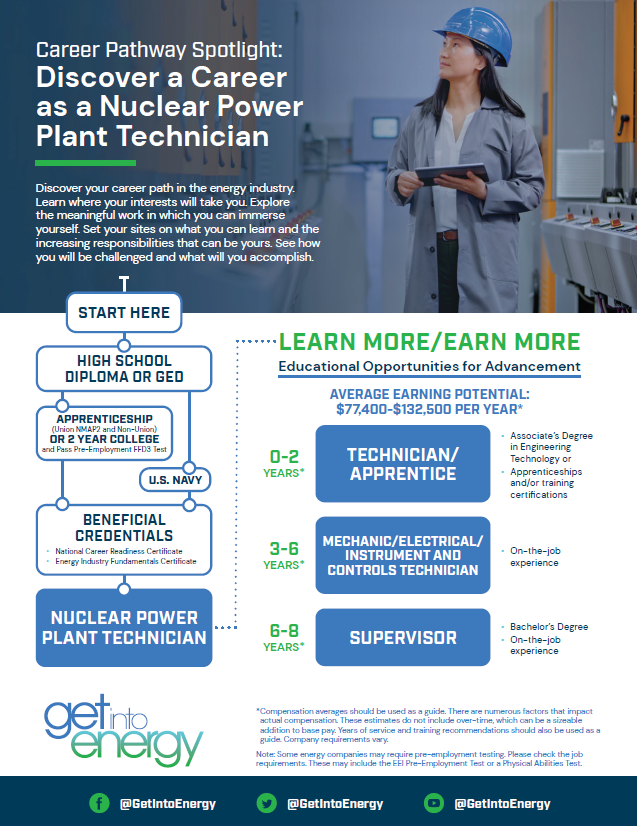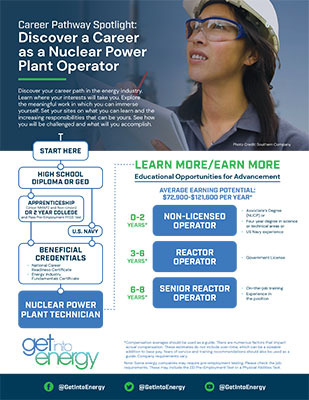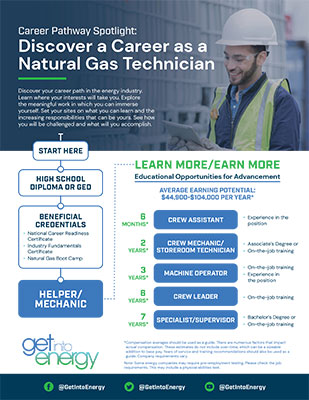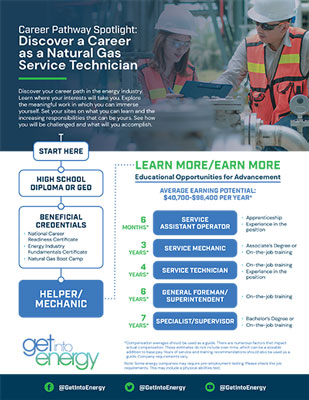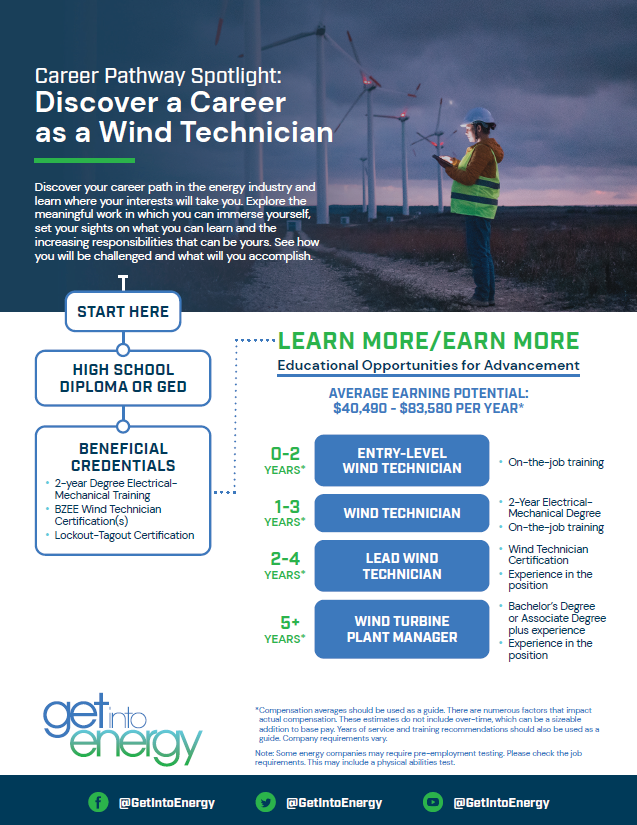Resources
CEWD OFFERS COLLATERAL THAT PROMOTES THE PROFESSION
CEWD has created several types of collateral to promote careers in the energy sector, helping men and women understand the dynamic, rewarding opportunities that are available for critical and strategic thinkers.
Click on the desired link(s) below to find downloadable, fast fact, documents about the energy industry.
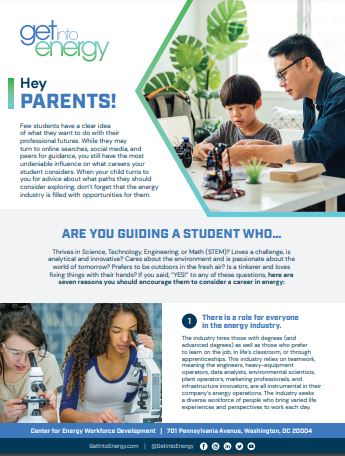
Industry Specialty Fliers
While we are proud to represent a united energy industry, we recognize that sometimes it’s important to showcase career specialties within the various segments of the sector. Check out our sector specific fliers here.
General Materials
CEWD created a one-pager to showcase how the industry is working collaboratively to respond to its workforce development priorities. The intended audience for this piece is workforce agencies, community-based organizations, and policy officials. Additionally, the Association for Career and Technical Education created a sector specialty flier, highlighting how CTE supports careers in energy. This is a great piece to use in meetings with MS and HS educators, as well as policy officials. Other fliers include an overview of our Energy Industry Fundamentals credentialing program and a piece that debunks potential myths and misperceptions about working in the energy industry.
Career Pathway Fliers
These updated career pathway fliers provide an overview of key industry positions, their earning potential, key competencies, and career advancement opportunities.
